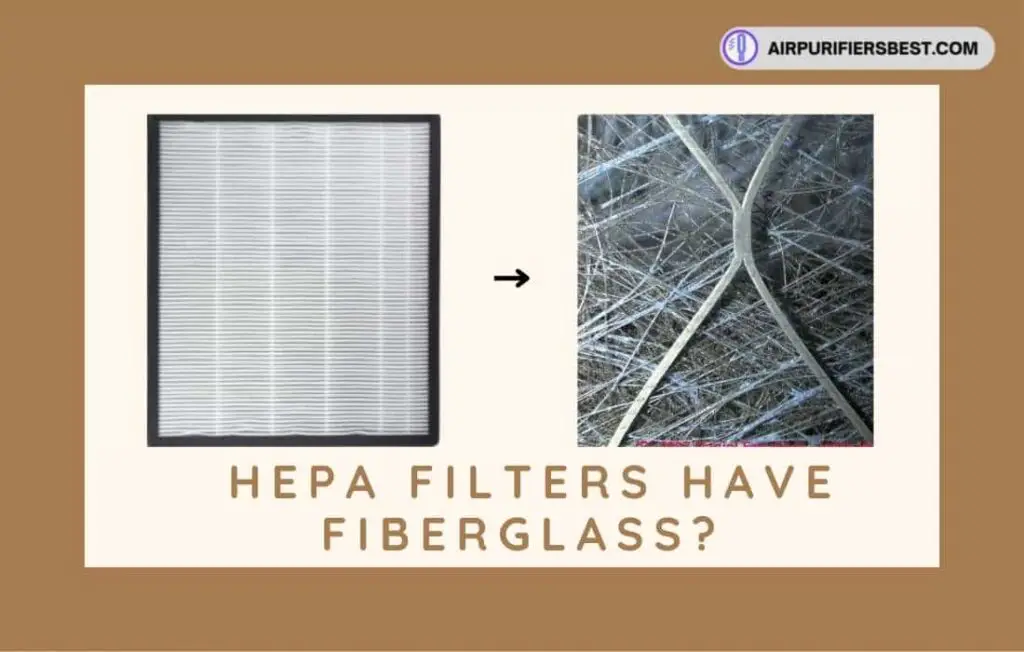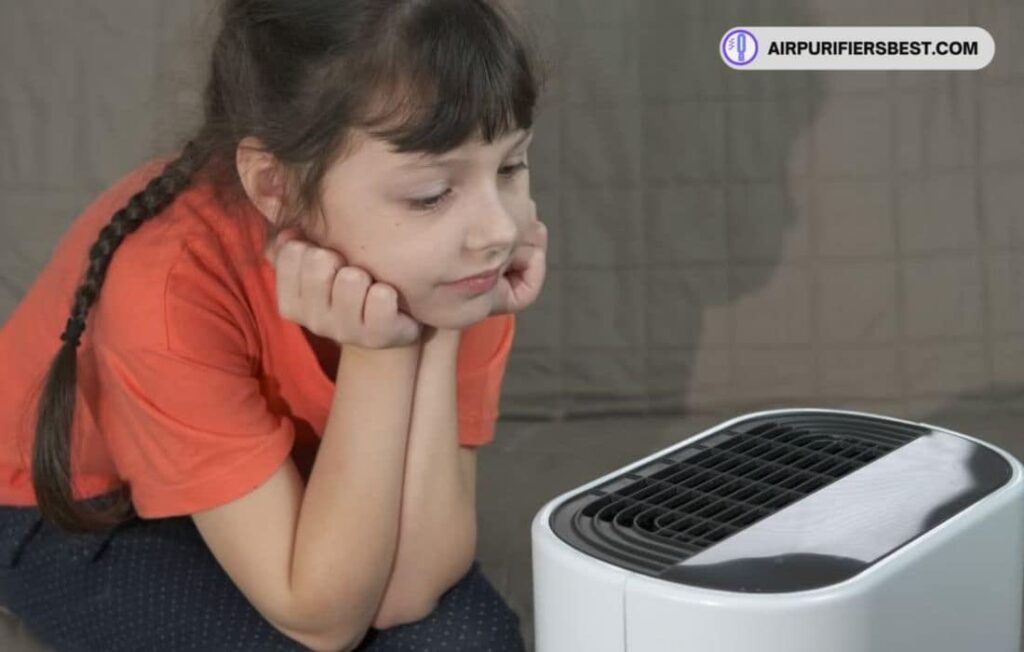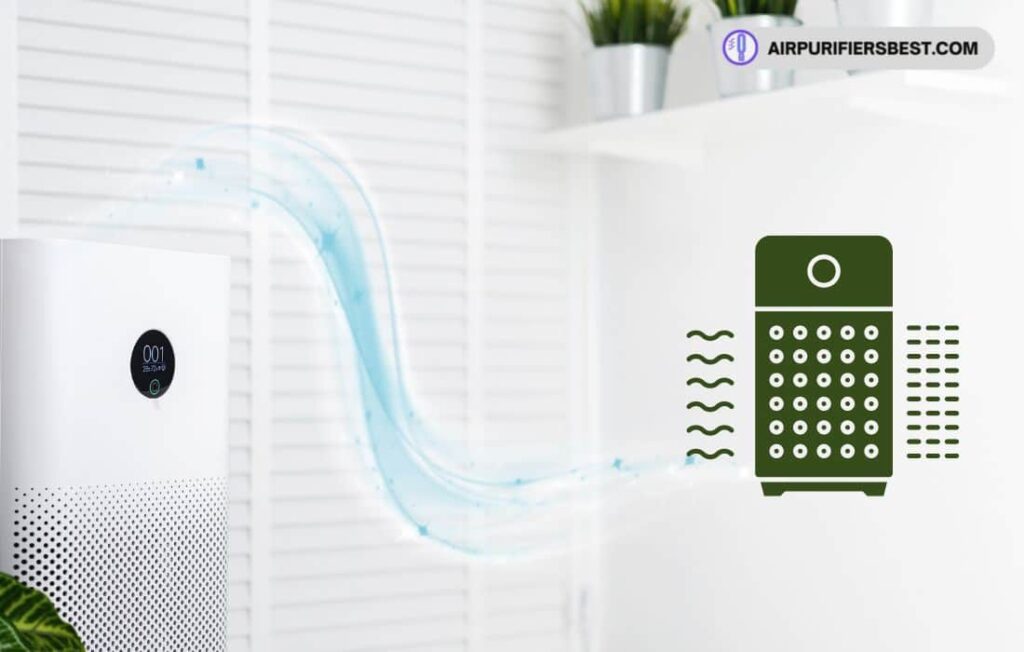Fiberglass:
Fiberglass is manufactured safe to use in appliances like a HEPA filter; cutting, chopping, or trimming the material can cause hazardous glass dust to float in the environment. This is especially true for people who work closely with fiberglass shaping. Larger particles of fiberglass, when in contact with the skin, can cause rash and skin irritation. If swallowed, fiberglass can also cause stomach irritation and eye allergies. Temporary health problems only occur if the particle size of fiber dust inhaled or contacted is more significant than the harmless size.HEPA Filters eliminate the minutest of contaminants and impurities in the air by filtering them using three primary filters. Two of these outer filters work like a sieve to discard the more significant impurities. The inner fiberglass filter is densely pleated to create a greater surface area and stop particles as small as 0.3 micrometers.
As we mentioned, not all HEPA filters are made with fiberglass. Some are manufactured using polypropene. Both these filters are equally effective. In removing dust contaminants from the air with an efficiency of 99.9, with or without fiberglass. In almost all cases, these filter part is going to be made from a material known as fiberglass. Fiberglass is one of the most effective filters imaginable. You can think of fiberglass as cloth-constructed glass. We will talk a little bit more about that soon. In recent years, we have started to see HEPA filters made of plastic. Specifically, these are a combination of polypropylene and polyolefin plastic. These materials are woven together much in the same way that fiberglass filters are woven together. Yes, it will. Here’s why. Glass fibers/ Microfiber/ Fiberglass/ Spun Glass are some of the common materials used to make a True HEPA filter. It is very effective and can trap 99.97% of airborne particles as small as 0.3 microns. Most HEPA filters will have the fibers arranged in a grid/ honeycomb format that is very well intact. But as time goes by, the HEPA filter quality will deteriorate, and this would cause the glass fiber to break out and release back into the air. So glass fiber could potentially cause a reverse effect on your breathing space. If you are not allergic to dust, dander, or mold, yet you suffer from throat irritation and have sinuses without any mucus, try stopping the air purifier with a glass HEPA filter from operating for a couple of days and she does it helps. If things improve drastically, try replacing the HEPA filter will a new one (original, not those third-party imitation types) and see how it goes. Breathe and touch is not a pleasant experience in fiberglass. when people hear that HEPA filters may have fiberglass in them as a result they get somewhat confused.
After all, we breathe designed to keep as pure as possible air by HEPA filter.
Do HEPA Filters have Fiberglass in them:
This is because making filter material fiberglass is the most affordable. Although the jury is still out on that one, some would say it is also more effective.in HEPA filter. however, about fiberglass, there is nothing dangerous so don’t worry about this. You aren’t suddenly going to have a ton of glass fibers floating around your home. If you put fiberglass filters in your air purifying system, the material is not just going to break down. In the market as well as in residential or industrial use ever these purifiers in and out of Discussions and deliberations for HEPA filters. Most HEPA filters are popular and available in the market that contains fiberglass as part of a filter. Fiberglass has a budget-friendly inside.
The air purifier is efficient and cleans air thoroughly. As we know, not all HEPA filters have fiberglass in them.0.3 small micrometers densely pleated particles that create a greater surface area in innerfiberglass.3 main filters of HEPA filter the air and get rid of minutes and contaminants and impurities in the air. Some manufacturers are using polypropene.99.9 efficiency of fiberglass is equally effective in dut removing particles and contaminants. of course! Not it means that a glass fiber filter can be out of the filter and be harmful to you?
HEPA filters Are designed to use in homes and businesses to improve the air quality and are also often used to remove particles from the air .one of the most important question arising here regarding HEPA filters is whether or not contain fiberglass answer is complicated it all depends on the type of HEPA filters.
Some HEPA filters do contain fiberglass, while others do not. If you are concerned about whether or not your HEPA filter contains fiberglass, you should contact the manufacturer to find out for sure.
What are HEPA Filters?
In order to filter the air effectively, these filters are often made from polypropylene (or fiberglass). This is also often the reason why the question “are HEPA filters safe?” comes up. Concerns over fibers from the filter being blown into the air and inhaled into the lungs often drive this conversation. HEPA stands for high-efficiency particulate air. According to the EPA, this type of air filter can theoretically remove at least 99.97% of dust, pollen, mold, and bacteria. It can also remove any airborne particles with a size of 0.3 microns or larger. Since the air contains moisture, filters must be made with materials that are non-corrosive. Fiberglass has the advantage of being unaffected by strong chemicals and toxins. Plus, its anti-corrosive properties make sure it is not oxidized in combination with moisture either.
Besides, fiberglass is so great as a filter because of its durability, and easily mendable features. Since they are produced with an energy-efficient method, the material is sustainable and low maintenance as well.
This is because the glass wool composite material is successful in being an effective filter that sieves out the smaller particles. In addition to that, fiberglass is a widely available and affordable material to be used in such air purifiers.
How do HEPA Filters Work?
HEPA filters do have fiberglass. The fibers are very fine and are woven together tightly to create a mesh that is able to trap tiny particles. This makes HEPA filters very effective at removing contaminants from the air. Hepa filters are made of a type of glass called “fiberglass.” This glass is made up of very small fibers, which are woven together to form a fabric. The fibers are so small that they can trap particles that are much smaller than the width of a human hair.
Hepa filters are used in a variety of applications, including air purifiers, vacuum cleaners, and even in some types of clothing. Hepa filters are made of a type of glass called “fiberglass.” This glass is made up of very small fibers, which are woven together to form a fabric. The fibers are so small that they can trap particles that are much smaller than the width of a human hair. Hepa filters are used in a variety of applications, including air purifiers, vacuum cleaners, and even in some types of clothing.
FAQs:
Which HEPA Filters Have No Fiberglass?
Most HEPA filters are made from fiberglass. This is because fiberglass is one of the most effective materials for even the smallest of particles from the air. Filters can be made from a variety of different materials.
Why Are HEPA Filters Pleated?
If you looked at a HEPA filter up close that you will see that it is pleated, which means that it is arranged in a zig-zag pattern. When something is arranged in a zig-zag pattern like this, it has more surface area. When a HEPA filter has more surface area, it can filter more air at the same time. With That ‘being said, pleating’ makes the HEPA filter much more effective.
Are HEPA Filters Safe?
While HEPA filters do release a very small number of fiberglass particles into the air, their overall effect on the human body is negligible. This already slow rate of release also decreases over time as the filter ages.
How often should I replace my HEPA filter?
Yes, HEPA filters do have fiberglass. The fiberglass is used to create the pleats that the filter material is arranged in. This gives the filter a large surface area to capture contaminants.
Conclusion:
All HEPA filters will contain fiberglass. some HEPA filters contain fiberglass, which can be harmful if inhaled. If you are concerned about fiberglass, look for a HEPA filter that does not contain it. Although the fiberglass in the filter shreds microparticles into the air, the number of shredded particles is well below the official safety levels.




